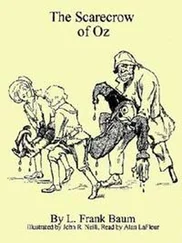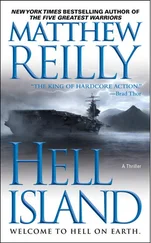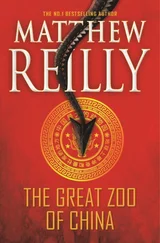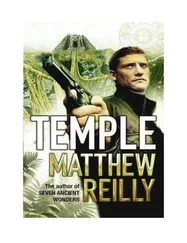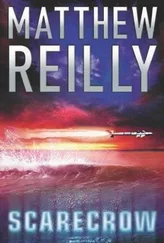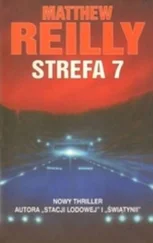“But none of them worked. I kept thinking about Fox, picturing her death. I kept thinking about what I could have done. I felt powerless. I retreated into myself.”
“So what changed?” Champion asked.
“I found a new shrink, not a psychiatrist, but a psychologist, a simple therapist. And not through the Corps. Mother found her, saw her flyer tacked to the notice board at her husband’s office and gave it to me—Ralph’s a trucker and the company he drives for was offering free therapy to its long-haul drivers because of rising divorce rates.
“Anyway, that psychologist’s name was Dr. Brooke Ulacco, and she wasn’t some old white male Ivy Leaguer. She was a mother of two boys and she worked part-time out of the basement of her townhouse in Baltimore. I started doing therapy with her.”
In his mind’s eye, Schofield could see it as if it were yesterday.
Arriving at the old townhouse, with its formstone walls, being met at the door by Brooke Ulacco, a tawny-haired woman in her forties with wide hips, a gentle smile and a razor-sharp mind.
He recalled sitting in her basement office—valiantly decorated with potted plants and some framed photos, but nothing could hide the pipes and water heaters—hearing the kids playing upstairs. He even remembered once when Dr. Ulacco called out: “Kids! I’ve got a client down here! Keep it down, will ya!”
Schofield liked that atmosphere.
Others might have found it distracting, but to him it was normal and that made it wonderful. It was the real world. Real kids playing in a real way and a real mom telling them to play quietly. That was who he fought for and that was why he did what he did, why he fought terrible missions against terrible people in terrible places.
Ulacco also didn’t beat around the bush. She spoke plainly and honestly, sometimes brutally so. If she felt Schofield was skirting around an issue or an emotion, she called him on it, often cutting in with, “Now, come on, Marine, that’s not true . . .”
But she could also be extraordinarily kind. For instance, when he spoke of Gant, of her thousand-watt smile, of the wonderful person she had been, Ulacco would just sit back and let him talk. On those occasions, she never interrupted.
A problem arose early on: Ulacco didn’t have the same high-level clearance that the other shrinks did, so at first Schofield couldn’t tell her the details of what had happened on that fateful mission, just his feelings about them. After a time, though, when he felt he could trust her, he asked his superiors in the Marine Corps if Ulacco could be background-checked for the appropriate level of clearance, so he could tell her more. It took a few months, many checks (including two sweeps of her office for bugs) and three polygraph tests, all of which Ulacco endured without so much as a blink—she had a brother named Bryce fighting in Afghanistan, so she understood. But eventually clearance was given: “TS/SCI” or “Top Secret/Sensitive Compartmented Information,” which allowed her to be told the details of those missions relevant to Schofield’s treatment, and that made things much easier.
But while Ulacco’s straight-talking manner and humble basement office made Schofield comfortable, it was her unusual brand of therapy that had made him well again.
“So what could this part-time suburban psychologist teach you that the best minds in mental health could not?” Champion asked.
Schofield shook his head. “It’ll sound weird, but she taught me about memory techniques, including one particular technique called the method of loci. Some people call it a memory palace or memory cathedral. You order your memories into a visual location of some sort—a cathedral, a town, a house, whatever, so long as it’s a structure that you know very well and can thus picture easily. Then when you want to remember something, you travel through that memory location and find the memory you’re after. What Dr. Ulacco taught me was more than that: she taught me how to use a memory location to forget .”
Champion said, “Go on.”
“I needed to function, to be able to keep going,” Schofield said. “I didn’t want to forget Fox, but I needed to be able to . . . compartmentalize . . . the memory of her so I could move on and function and continue to be the person I am.”
“And what is your memory location?” Champion asked.
“It’s stupid. You’ll think it’s silly.”
“I’ll probably be dead within the hour, so what can it hurt to tell me?”
Schofield took a deep breath. He’d never actually told anyone about this, not even Mother.
“It’s a submarine,” he said.
Despite herself, Champion snuffed a brief laugh. “I’m sorry.”
“I told you it was stup—”
“No, it’s clever. It’s very clever. Submarines have strong walls, and compartments that you can close off with airtight steel doors. It strikes me as an excellent location to store memories, especially painful ones.”
“It was Ulacco’s idea,” Schofield said. “She suggested a spaceship or an aircraft carrier but I liked a sub the best. I’ve been on many, so I know the layout well and can conjure it up easily. I seal off the most painful memories in the farthest reaches of my imaginary submarine, behind many watertight doors. They’re still with me, but I only access them when I really want to, when I’m ready to. Getting to them requires substantial mental effort. There’s also another reason why a submarine is good.”
“Why is that?”
“Because you can purge a submarine,” Schofield said flatly. “Eject the trash, so to speak.”
“You mean jettison memories for good?” Champion frowned. “Forget things forever ?”
“If you’re disciplined enough, yes.”
At that, Champion made a strange face, a sorrowful one.
She said, “This Fox, this Gant, she sounds like an impressive woman. So impressive that she captured your heart—a heart, I imagine, that is not often or easily caught. I can understand how damaged you were by her death. But to try to forget someone entirely ”—Champion shook her head—“this is a very sad thing. Not even I did that. Is that what you did to keep going? Did you jettison her entirely from your memory?”
Schofield looked away again, kept paddling.
“I don’t—”
At that moment, his wrist guard vibrated.
Schofield looked down at it.
A message had come in, from David Fairfax.
“This conversation is to be continued,” he said, looking down at the message.
THE MESSAGE read:
FFAX: THANKS FOR GETTING ME INTO HUGE TROUBLE. ON THE RUN FROM SOME CIA THUGS THANKS TO YOU. READ THIS AND ALL WILL BE REVEALED. I THINK THIS CALDERON GUY IS LEADING YOUR ARMY OF THIEVES. GOTTA RUN NOW.
Schofield frowned. The CIA?
Attached to the message was a document in PDF form, titled OPERATION “DRAGONSLAYER.” He opened it and, sitting down beside Champion so she could look on, started reading:
OPERATION “DRAGONSLAYER”
ANALYSIS AND OPERATION CONCEPT BY
MARIUS CALDERON
AUGUST 1, 1984
Pursuant to my report of July 2, 1982, titled THE COMING RISE OF CHINA AND THE ENSUING FALL OF AMERICA, I have been tasked by the Agency’s Director (Operations) with formulating a plan by which the United States can avoid the fate described therein. The plan I propose is this:
We use Russia to kill China.
Schofield glanced at Champion. “Use Russia to kill China? This is about China ?”
They kept reading:
EXECUTIVE SUMMARY
I have been looking into some of our recent prototype weapons programs and found one—an atmospheric or “Tesla” device that uses the global jet stream to send a flammable plume of gas around the northern hemisphere. Weather models have shown that if placed in certain Arctic locations—including one Soviet fleet maintenance station in the Arctic Circle called Dragon Island—the chief victim of such a device will not be Russia but rather China.
Читать дальше

